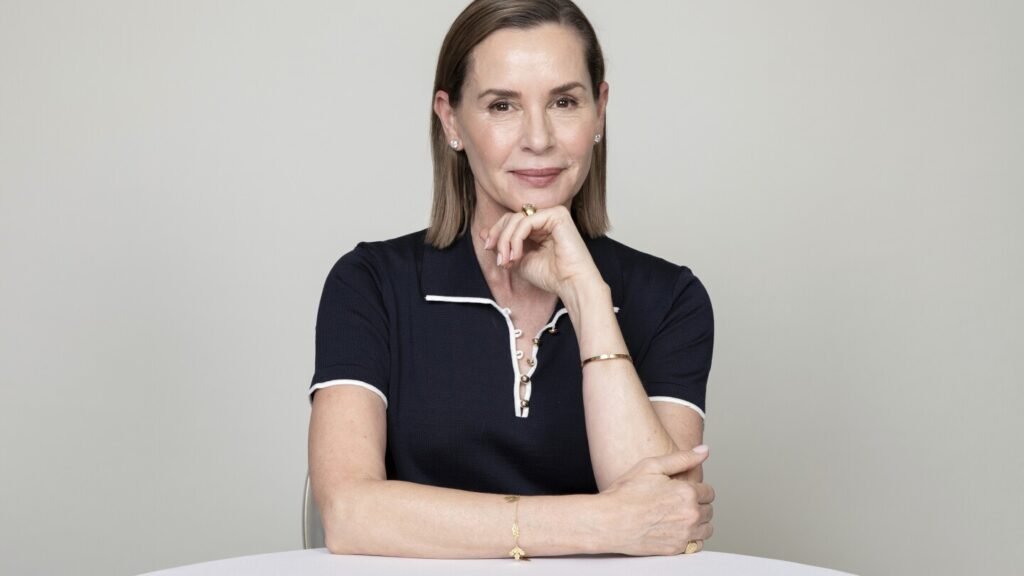In 1974, when it seemed as though everyone was leaving South Africa, Embeth Davidtz’s family was going back.
Davidtz, a familiar presence in films and television for over 30 years with memorable roles in everything from “Schindler’s List” to “Matilda,” was born in the United States to white, South African parents. When she was 8, they decided to return during a time of upheaval.
Although the transition from “innocent New Jersey” was hard, it was also a life-making, character- and imagination-building experience that she’s still processing to this day. It’s where she grew up. It’s where she began acting. And it’s where she’d return decades later to direct her first film, “Don’t Let’s Go to the Dogs Tonight,” a poetic and deeply personal adaptation of Alexandra Fuller’s memoir about growing up during the Bush War in Zimbabwe, which was then Rhodesia.
The film, which was widely praised at the Telluride and Toronto Film Festivals for its deft handling of complex themes and for the discovery of young newcomer Lexi Venter, opens Friday in limited release and expands nationwide July 18.
“The sun rises and sets on her writing,” Davidtz said in an interview with media. “If anything works, it’s because of that memoir.”
Like so many people, especially those who lived in Africa in the 1970s and ‘80s, Davidtz devoured the book when it came out in 2001. But it would take more than 15 years to start seriously thinking about a film. Davidtz was refocusing after a little hiatus from acting: She’d survived breast cancer, raised children and was reflecting on parts of the book she loved, like Fuller’s mother, a complex figure who struggled with trauma, alcohol and mental health. Davidtz, who is now 59, could have hardly predicted that this journey would lead to her writing, directing and producing her first feature as well.
“It felt like an imperative. It felt like a call,” she said. “Once I dug my teeth into this, I felt like I couldn’t not tell it.”
The adaptation was slow-going but rewarding as Davidtz sprinkled some of her own stories and recollections in and the focus and structure of the story started to reveal itself. A pivotal revelation came four years in: It had to be from the child’s point of view.
“I wasn’t thinking about directing it, but at the end, I thought, you know what? I know what kind of shots I like. I know what sort of films I like. I could shoot this so simply,” she said. “I need to take control of this because if I give it away to someone else, they’re not going to tell the story that I’m trying to tell.”
Davidtz was inspired by Terrence Malick films like “Badlands” and “Days of Heaven,” and the young girls’ narrations, as well as Steven Spielberg’s “Empire of the Sun,” in which the end of a colonial regime is seen through the eyes of a young, white boy.
“People say, ‘Oh, voiceover is so lazy,’” Davidtz said. “But with a child you hear the quirks, you hear the offbeat, you hear what is wrong and the point of view that is skewed.”
To play Bobo, the 8-year-old center of the film, Davidtz did not want a polished child actor. She wanted a real kid — a wild, little barefoot child, unspoiled and unsophisticated, who could maybe ride a motorbike. They eventually resorted to a Facebook post which led them to Venter, age 7.
“It was such a project of love and torture,” she said. “It was so very hard to direct a 7-year-old who doesn’t act.”
Venter wasn’t given a script. Davidtz instead played games, would give her some lines to say and then pour through the footage to find the most unfiltered moments to sprinkle into the film with the overlaying voiceover — a yawn, the picking of a wedgie, the things kids just do.
“I got a few gray hairs from that, but I love her. She’s perfect,” Davidtz said. “I worry that I have brought her into the world in a way that, cinematically, people will seek her out. I want her to be left to be the wild little creature that she is.”
